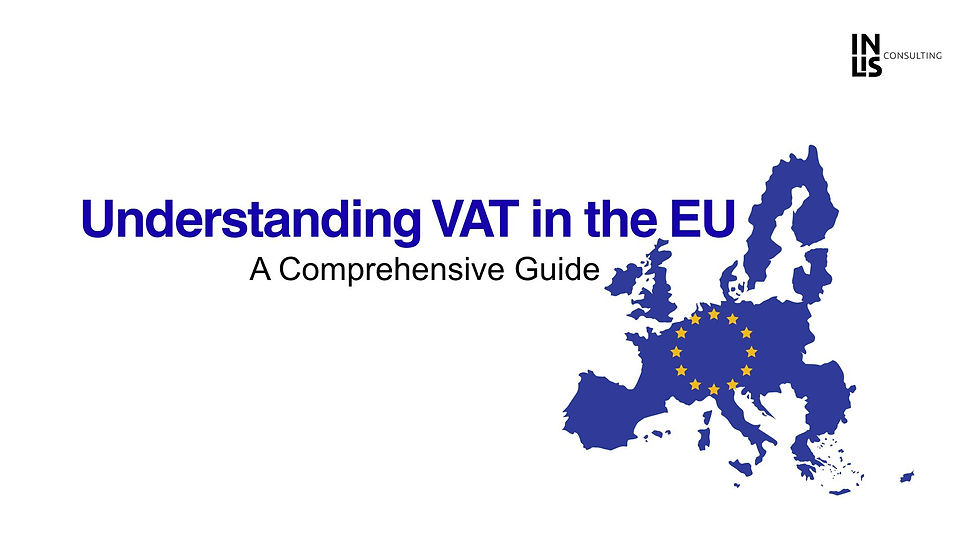UK Business Owners: Portugal Could Be Your Tax-Savvy Exit Route
- INLIS Consulting
- May 16
- 3 min read
Selling a privately held company is a major turning point, both financially and personally, for many UK business owners.

Why Consider Portugal as Part of Your Exit Strategy?
Portugal has long been a popular destination for international individuals, thanks to its mild climate, high quality of life, and relatively low cost of living. But beyond lifestyle, the country also offers a potentially attractive tax environment, particularly for those planning to sell a business based outside Portugal.
If timed and structured properly, becoming a Portuguese tax resident before the sale of your UK-based company could allow for favourable tax treatment on capital gains, and in certain circumstances, even full exemption on those gains.
The Role of the NHR 2.0 Regime
Portugal’s Non-Habitual Resident (NHR) regime, often referred to now as NHR 2.0, offers preferential tax treatment to new residents who meet specific criteria. While the original NHR program is being phased out, the updated framework still provides tax benefits for foreign-source income and gains, under certain conditions.
For UK business owners considering a sale, this may open a window of opportunity:
Capital gains on shares from a UK private limited company may not be taxable in Portugal, depending on the specifics of the case and provided the right structuring is in place.
Gains may also fall outside the UK tax net under the UK's temporary non-residence rules if the individual remains outside the UK for a sufficient period after the sale.
This combination of Portuguese tax exemptions and UK non-residency can, in some cases, result in significant tax savings, but the rules are complex and require careful coordination.
Key Considerations and Risks
While the idea of reducing or eliminating tax on the sale of your business may sound compelling, it’s important to understand the challenges and requirements involved:
Timing is everything. Establishing Portuguese tax residency must be done before the sale, and ideally well in advance.
Residency rules matter. You must genuinely relocate to Portugal and meet both factual and legal tests for tax residency.
UK rules still apply. Under the temporary non-residence regime, individuals who return to the UK within five years may be liable for tax on capital gains retroactively.
Anti-avoidance provisions in both jurisdictions must be navigated carefully.
Double Tax Treaties between the UK and Portugal will also influence the outcome.
This is why early planning — ideally 1–2 years before the sale — is essential.
When Should You Start Planning?
If you're contemplating the sale of your UK business within the next few years, now is the time to start evaluating your options. Even if the deal is not yet on the horizon, developing a personal tax strategy aligned with your business exit timeline can be one of the most valuable decisions you make.
By relocating to Portugal strategically and leveraging the country’s tax framework, you may unlock meaningful financial benefits while also enjoying a new lifestyle in one of Europe's most desirable destinations.
How INLIS Consulting Portugal Can Help
At INLIS Consulting Portugal, we specialize in helping international entrepreneurs, freelancers, and business owners navigate the complexities of Portuguese tax residency, NHR applications, and cross-border tax planning. Our experienced team works in collaboration with UK-based advisers to create a compliant, efficient transition strategy that aligns with your long-term goals.
📩 Thinking of selling your UK business? Let’s talk.
We’ll help you explore whether Portugal’s tax regime could play a meaningful role in your exit and wealth planning.




Comments